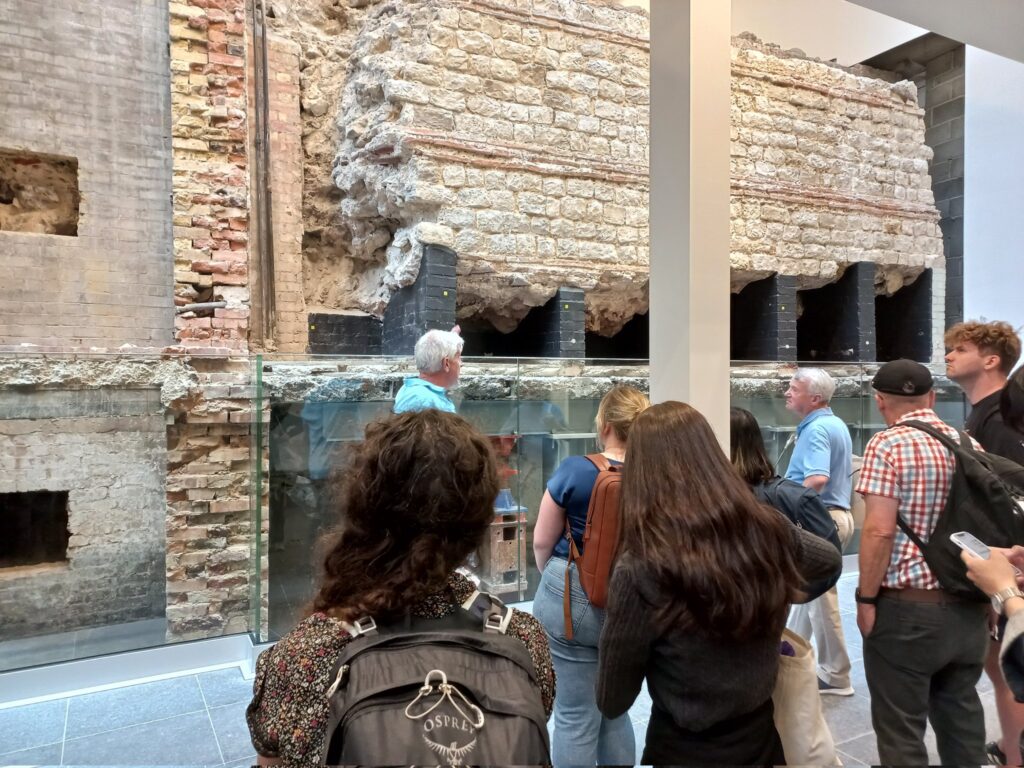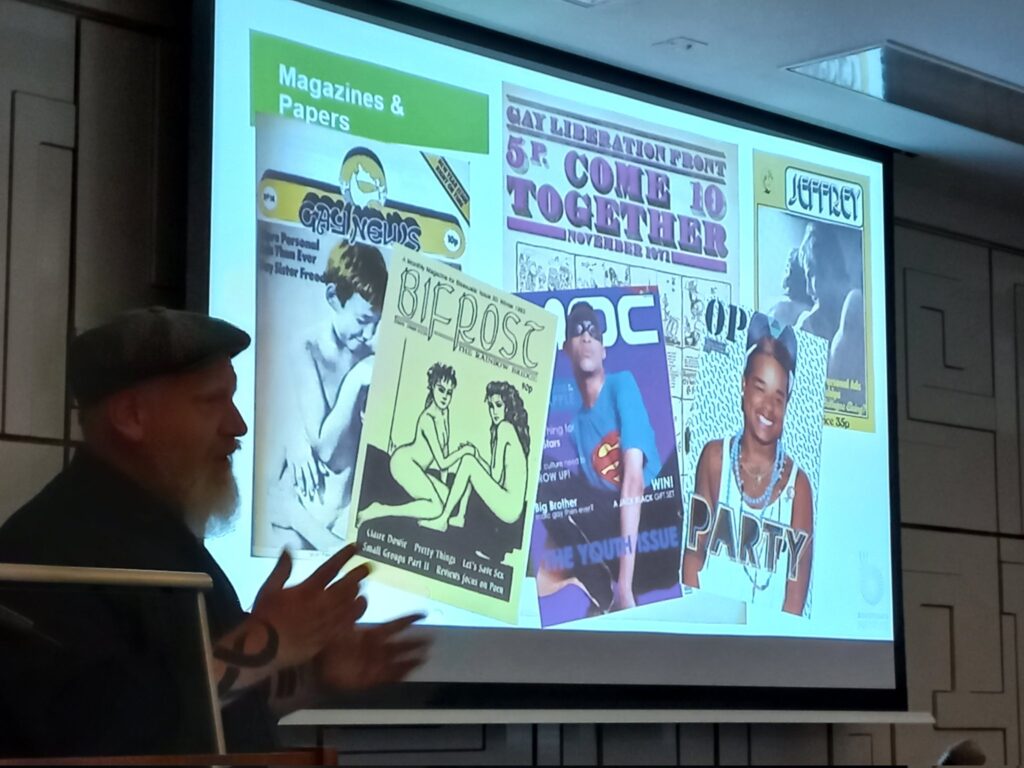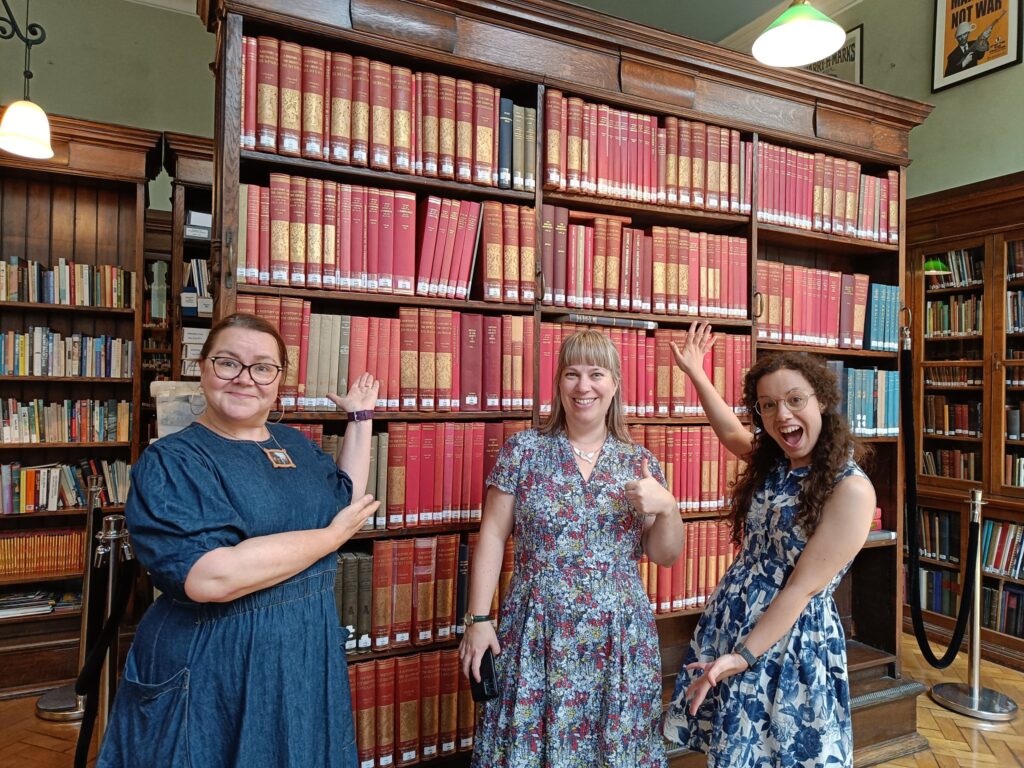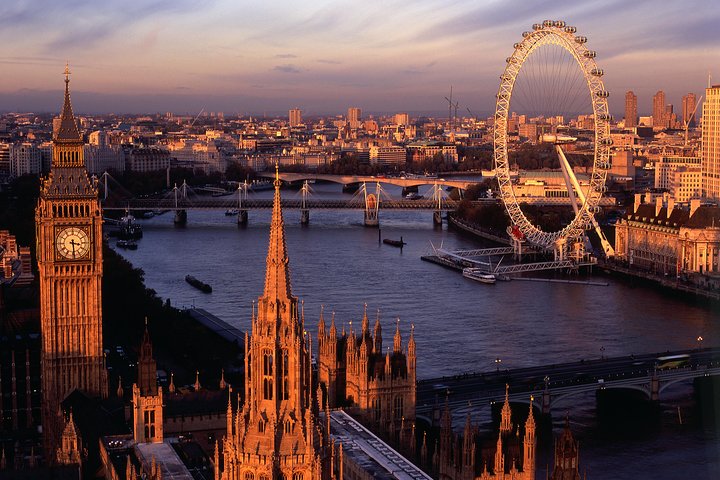This blog post was written by Justin Colson, Senior Lecturer in Urban and Digital History in the IHR’s Centre for the History of People, Place and Community.
The IHR’s second annual summer school ran for the full week of 10 to 14 July 2023. Participants came from as far away as Melbourne and San Francisco—joining some London locals—to immerse themselves in a diverse programme of lectures, skills workshops, and experimental learning tours.
Sessions ranged from the earliest days of Roman London to the near-past of recent years, with each day following a different thematic take on ‘secret’ London. Monday began with a focus on London and the security services, with a lecture and tour by Professor Philip Murphy revealing the London locations used by the security community across the twentieth century. Tuesday focused on evidence of the ‘lost’ era of ‘Dark Earth’ London following the fall of Rome, including a lecture from the IHR’s Simon Trafford, a workshop on collaborative spatial storytelling using Layers of London, and a tour of the London Mithraeum and the Vine Street London Wall remains with former Museum of London archaeologist Roy Stephenson. We were so lucky to have this ‘early look’ at the new Vine Street London Wall display, with an expert involved in its creation. The day ended with the already-traditional IHR London Summer School Quiz, with pizza, drinks, and lots of laughter.

Wednesday turned to the modern era and the idea of ‘the archive as confessional’, with a lecture from Professor Claire Langhamer on Mass Observation, and a workshop with Michael Eades on the ‘Secret Diary’ project, in which anonymous diaries in public places revealed a unique history of London during the COVID lockdowns. The summer school week encompasses the annual Derek Keene London Lecture where, this year, Stef Dickers, archivist at the Bishopsgate Institute, spoke about collecting and celebrating LGBTQ+ history in London and beyond.

Thursday turned to hidden material histories of London, with a lively discussion of the famous and mysterious ‘Cheapside Hoard’ of seventeenth century jewellery, and a hands-on workshop producing 3D models of objects using photogrammetry with Dr Gabriel Boddard of the Institute of Classical Studies. Students then had the opportunity to explore the amazingly diverse archives of the Bishopsgate Institute in person. The summer school concluded with a conversation around the hidden work of women historians in the early work of the IHR’s Victoria County History, a walking tour of sites associated with the history of slavery with Dr Juanita Cox, and a fascinating session in which participants presented on the amazingly rich and diverse topics they are working on in their own studies.

The summer school was a great success, and students commented in the feedback on how much they enjoyed the range of skills and content, and the balance between classroom and experiential activities. Many participants took the opportunity to reflect upon and share their own historical practice, and one student even commented on how much the experience of the summer school helped their own work: ‘I’ve been completely re-inspired, I have left feeling so driven.’
The IHR London Summer School is now an annual fixture, and 2024’s summer school has been announced with the theme ‘Rivers’. From the rich archaeology of the Thames riverbanks, to the ‘lost’ rivers that have increasingly helped to frame local identities in London’s suburbs, and London’s rivers in literature, we look forward to exploring London’s rivers with next year’s students!

